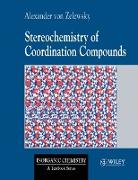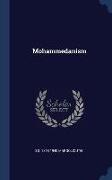Steroechemistry of Coordination Compounds
BücherAngebote / Angebote:
This series of textbooks reflects the breadth of modern research in inorganic chemistry and fulfils the need for advanced texts. The series will cover the whole range of inorganic and physical chemistry, solid state chemistry, coordination chemistry, organometallic chemistry, main group chemistry and bioinorganic chemistry.
100 years after the formulation of the coordination theory by Alfred Werner, stereochemical considerations are again at the centre of interest in the development of metal complexes. Reflecting this renewed interest, Stereochemistry of Coordination Compounds explains the modern aspects of this area of chemistry, firstly by introducing the stereochemistry of various coordination geometries. The later chapters go on to address applications in the field of polynuclear species and stereochemical aspects of reactions, including enantioselective catalysis. Stereochemistry of Coordination Compounds provides:
* A systematic introduction to the structures of molecular species with atoms of various coordination number, focusing on the most important octahedral case
* A presentation of the principles that are applied to produce molecular helices, chains and knots
* An account of the historical background of the stereochemistry of coordination compounds
* An introduction to the stereochemical nomenclature of coordination compounds
* Electronic figure files that are available on the Internet
Stereochemistry of Coordination Compounds is essential reading for undergraduates, post-graduate students and lecturers specializing in coordination chemistry in inorganic and bioinorganic chemistry. The cover shows a 'random pattern' stereogram of an octahedron, designed by Oliver Fuhrer, Lupsingen, Switzerland. In the text, extensive use is made of the ability of computers to display 3D pairs of molecules. The grey scale figure that was used to create the random pattern stereogram is shown below.
Lieferbar in ca. 10-20 Arbeitstagen




